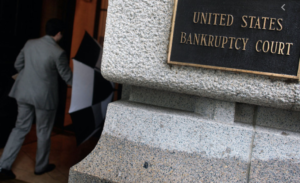An adversary proceeding is the bankruptcy court’s version of a civil complaint. It is governed by Federal Rule of Bankruptcy Procedure (FRBP) Rule 7001. It is essentially a separate lawsuit filed within the bankruptcy case. Like most lawsuits, it starts when someone (the creditor, the bankruptcy trustee, or you) files a complaint.
A creditor or the bankruptcy trustee might bring an adversary proceeding to challenge the dischargeability of a particular debt — alleging that you incurred it through fraud. The trustee might seek to regain property that you transferred or sold to someone else prior to your bankruptcy. In many districts, you can only get rid of junior liens on real estate through an adversary proceeding.
There are different type of adversary proceedings but in a typical one, the case advances like a normal federal case; though at a faster pace. The bankruptcy judge may set a pretrial conference to plan the schedule ahed of the proceedings. The extent of discovery, the period until trial and other rules governing the proceeding will vary based on the complexity of the adversary proceeding or the judge’s particular rules.
FRBP 7001 permits the following adversary proceedings:
(1) To recover money or property. [Except for a proceeding (a) to compel the debtor to deliver property to the trustee; (b) to recover or reclaim property in the hands of a DIP or trustee under 11 USC §554 (abandonment) or §725 (disposition of property); (c) under FRBP 2017 (examination of debtor’s transactions with debtor’s attorney); and (d) under FRBP 6002 (accounting by prior custodian of property of the estate)].
(2) To determine the validity, priority, or extent of a lien or other interest in property.
(3) To obtain approval pursuant to 11 USC §363 for the sale of both the interest of the estate and of a co-owner (i.e., non-debtor) in property.
(4) To object to or revoke a discharge, except for motions objecting to discharge pursuant to 11 USC §§727(a)(8), 727(a)(9), or 1328(f).
(5) To revoke an order of confirmation of a chapter 11, chapter 12, or chapter 13 plan.
(6) To determine the dischargeability of a debt.
(7) To obtain an injunction or other equitable relief.
(8) To subordinate any allowed claim or interest.
(9) To obtain a declaratory judgment relating to any of the foregoing in points 1 through 8.
(10) To determine a claim or cause of action removed pursuant to 28 USC §1452.
If you are a civil litigator or a transactional lawyer, and need assistance litigating an adversary proceeding, we can co-counsel with you in the bankruptcy case. Contact attorney Eduardo A. Maura at eduardo@ayalalawpa.com for a consultation.




